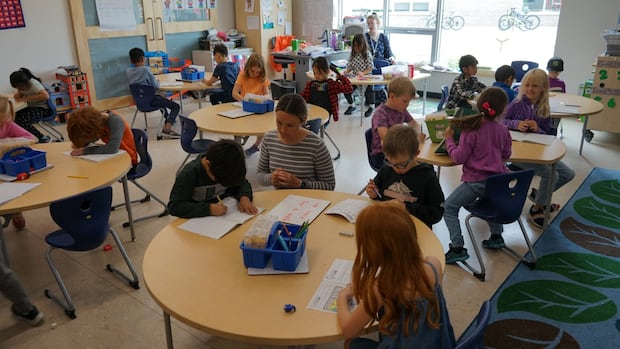The Brandon School Division is taking proactive steps to enhance safety, inclusion, and well-being in response to a violent incident that severely injured a high school student earlier this year. Following the sword attack at Neelin High School in Manitoba, where Grade 10 student Chinonso Onuke sustained significant injuries, the division is establishing advisory committees in all its schools this autumn.
The attack, which left Onuke with deep wounds and nearly severed fingers, was deemed a premeditated assault targeting individuals of color and immigrants. Brandon police Chief Tyler Bates described it as a racially motivated incident. In light of these events, the division is launching safe schools advisory committees to offer guidance on promoting safety, equity, and well-being through strategic policies and practices.
Superintendent Mathew Gustafson emphasized the importance of planning and communication in the wake of the June incident, which has impacted the community’s perception of safety protocols. In addition to forming advisory committees, the division is expanding its “Hour Zero” emergency response program, focusing on safety audits, parental and staff training, and enhanced emergency communication tools.
The committees will be led by principals and vice-principals, with participation from staff, parents, students, and community representatives, including police and fire services. Parents at Linden Lanes, a K-8 school in Brandon, expressed satisfaction with the division’s efforts and communication regarding safety measures. Zack McMillan and Abdu Abrehe, parents of students in the school, praised the division’s safety initiatives and communication strategies.
Gustafson highlighted the division’s commitment to anti-racism and ensuring safe environments for all students. Collaboration with the broader community was emphasized to create a more significant impact on fostering inclusivity and trust among students. Emmanuel Ahaneku, chair of the Umu Igbo Brandon Association, commended the division and the community’s response post-incident, noting the positive impact on families’ sense of security.
Despite lingering concerns, Ahaneku expressed optimism and confidence in the school system’s efforts to promote unity and combat racism. He underscored the importance of conversations at home about inclusion and respect in shaping young minds positively. Ahaneku emphasized instilling a belief in the system and fostering trust to overcome fear and apprehensions.



